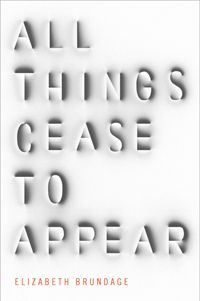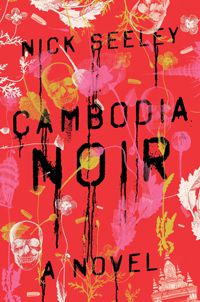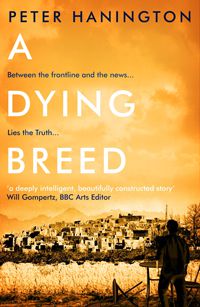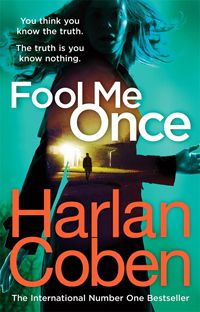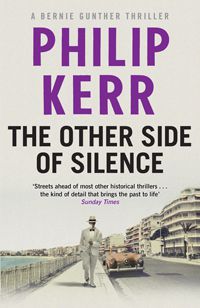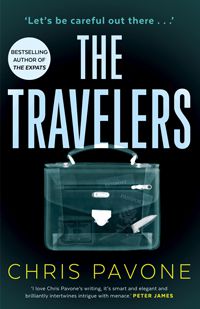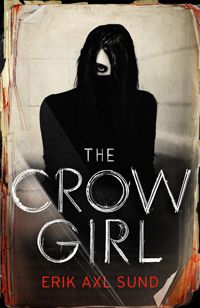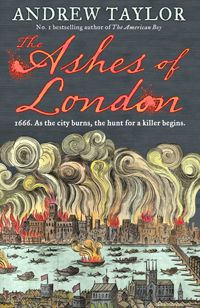CRIME BOOK OF THE MONTH
All Things Cease to Appear by Elizabeth Brundage
Over the few days I read this book, I wouldn’t steal small moments to read a page when I could, but instead find a place to relish the act of reading with the same slow-burn intensity the book itself has: only on my own in a room, only when it was silent. But not when I was alone, and certainly not when I was alone in the house with my young daughter, because that’s how the story begins: a daughter asleep and the mother in bed upstairs with an axe in her head. Her husband comes home from work that night and finds them there. Who could kill his wife and leave his three-year-old daughter in the house all day with a dead body? Why would anyone kill Catherine Clare at all? We find out with a depth of character detail that feels almost luxurious to read, looking back into the years that led to that day in February of 1979, all the way back to the Hale family who lived in the farmhouse before them – back when it was a working farm – and to the bitter end of the Hale adults, whose three sons moved just down the road and watch Catherine and George Clare move into their home and make it their own. At least, to the extent that making it their own is possible in a house that has not forgotten what happened inside its main bedroom, and in a town that will always remember.
All Things Cease to Appear is not a traditional crime novel but a psychological narrative of the past and present inhabitants of the Hale Farm, and the townsfolk who come and stake their claims to the earth of their emotional landscapes. Every moment is heady and important and real, with a depth of character that is like literary caviar to read, vivid detail enough to make you put your fingers on the words to see if they come alive – each character’s then and now, the ways in which they are good, the times when they are bad, and when they see the world beautifully, like the artists Professor George Clare teaches his students about. Catherine’s murder is not the only crime, and this will not end how you expect it to, but it is a visceral, emotionally bruising treat all the same.
NEW CRIME FICTION
Cambodia Noir by Nick Seeley
I love when a month comes up with an accidental theme: between Hanington’s journo, Coben’s soldier and Seeley’s photographer, we get to see war zones from all sides. Cambodia gets short shrift in fiction, but doesn’t deserve it; Seeley’s immersive, visceral gut-punch of a thriller puts you right in the heady environment of early 2000s chaos. Will Keller, once a war photographer and now trying (and failing) not to join the ranks of miserable expats in Phnom Penh, is hunting a missing woman in the fallout of a huge drug bust; June, the missing woman, records what happens in the lead up to her disappearance. No one is safe and everyone is involved: but while things go wrong for the characters, it’s good news for readers.
A Dying Breed by Peter Hanington
William Carver is an unpleasant BBC journalist who has been offered a redundancy package just before he flies to Kabul to polish his mysterious –possibly non-existent –investigative piece on Afghanistan. There, he studiously ignores his producer and everyone around him, until he reports on a bombing that kills a local politician – except that everyone wants the story to stop there. Enter eager young producer Patrick Reid, sent to keep him in line, much to Carver’s initial frustration. Between them they realise that the danger brewing right before a white-hot Afghan election can be traced right back to where they began – the BBC itself. A thrilling look into the underbelly of journalism: heavy drinking, newsroom tension, international drama and the quiet hope that it’s just all fiction … right?
Fool Me Once by Harlan Coben
When I see Coben on my list, I always feel a sense of comfort. He’s just so good at writing fast-paced thrillers that hook you in and make entire evenings completely vanish. Here, ex-soldier Maya Stern, honourably (but unofficially dishonourably) discharged because a video of her shooting (in order to save soldiers) what turned out to be civilians went viral, is in mourning. Her husband has just been murdered in a robbery gone wrong. But one day soon afterwards, when she checks her nanny cam, there he is, hugging their young daughter. But if he is not dead, then what happened? And if he is dead, is she seeing things? Has the guilt of her actions in combat taken over her sanity, or is her husband not what he seemed? Who to trust? Well, me, of course. Go and read it!
The Other Side of Silence by Philip Kerr
Bernie Gunther, Kerr’s beloved pre-, post- and in-wartime protagonist returns: it’s 1956, and he’s working as a concierge in the Grand Hotel on the French Riviera, living a quiet life as one Walter Wolf. To pass the time he plays bridge with the few people he considers friends, and his skill at the game gets him through the doors of the plush villa owned by one W. Somerset Maugham, who wants him to fill a gap at the card table. As it turns out, his bridge proficiency is not actually why he’s there, and Maugham seeks his help in settling a case of blackmail with one Harold Henning – someone who knows Gunther’s past, but doesn’t know the depths of Gunther’s fury with him. Knock up a gimlet and get into another period-perfect Kerr thriller.
The Travelers by Chris Pavone
Travel writer Will Rhodes is broke and heading towards miserable at home, but spends his days travelling the world for Travelers magazine, eating beautiful food, photographing soaring sunsets, and experiencing life in a seemingly unbridled but actually tightly scripted way. And so it goes, until he meets a woman – who is not his wife – on a trip. He turns her down. But that is not the end of something, it is the start. Will Rhodes is not who anyone thinks he is – including himself – and neither are those closest to him. This is a sharp, dangerous thrill of a book, immediate and sexy, Bond-smooth, world-wide, riveting as hell, and goes down as smoothly as expensive champagne. (I assume. Note to Readings: send staff on free trips to French vineyards?)
The Crow Girl by Erik Axl Sund (translated by Neil Smith)
It’s all gone a bit quiet on the Scandinavian front lately, but The Crow Girl has come flying in: a hefty, 750-page Swedish book that begins with the mummified body of a boy next to a train track, and unleashes a whole lot worse. We follow Detective Superintendent Jeanette Kihlberg, assigned to the case and battling the financial hardship of being the only breadwinner in the family; psychotherapist Sofia Zetterlund, who can’t stop her doubts about one of her patients whenever the case is mentioned; and then The Crow Girl, reliving her abusive past and hiding from the truth. It’s gripping stuff by Lund (actually a pseudonym for two men whose history in the music industry delivers an appealing fluidity to the writing) and a devastating look at the inhumanity of humanity.
The Ashes of London by Andrew Taylor
It’s 1666, and even the most unobservant students of history (read: this particular reviewer) know this year as one that wreaked a fiery destruction upon London. Watching these flames take over St Paul’s Cathedral, to the devastation of those convinced of the building’s impunity against fire, is James Marwood: newspaper assistant, lowly errand boy, and the son of a man just released for his crimes against the kingdom but now in the clutches of a malady of the mind. It’s a delicate balance just to survive, and now he is sent to investigate a dead body found in St Paul’s after the fire that day – but not killed by the flames, unless fire can now tie someone’s thumbs behind their back (it cannot). A sweltering, treacherous historical tale to be read under airconditioning.


